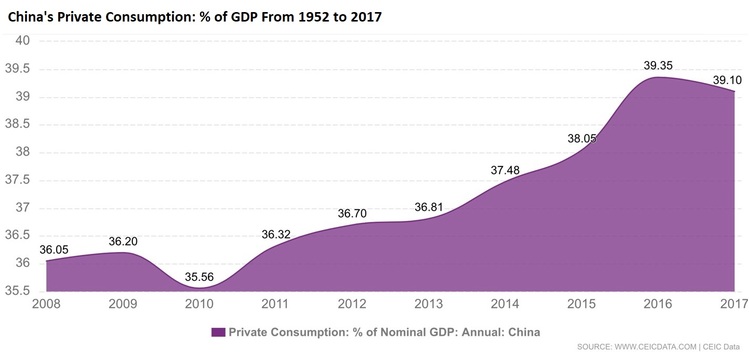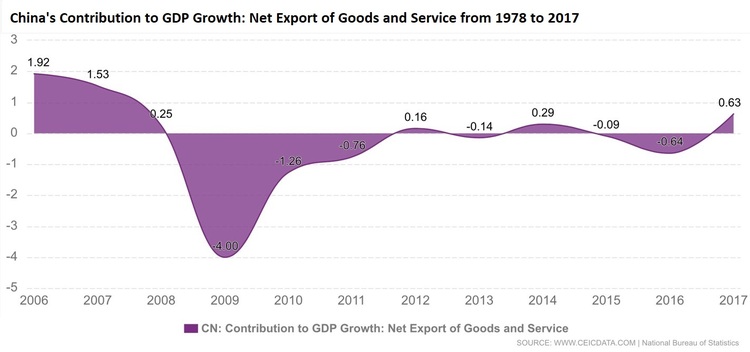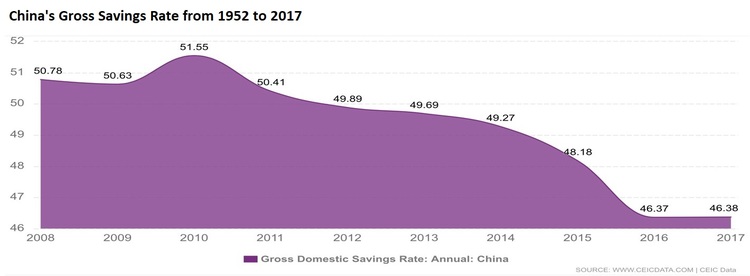Trade War Appreciation

Trade war rhetoric continues to dominate the headlines, and in some respects has put a damper on capital flowing into U.S. equities; perhaps this is overshadowing the fact that we continue to see strong U.S. corporate earnings growth. [i] [ii]
On a positive note, there have been some encouraging headlines related to trade talks. The European Union, which is the largest combined economy in the world, appears to be willing to cut a deal. [iii]
U.S. and EU reach deal to calm trade war fears: “Donald Trump and European Union officials appeared to step back from a trade war on Wednesday as they struck a deal to work toward “zero” tariffs, barriers and subsidies.”
– The Guardian [iv]
Additionally, it would also appear that Mexico is looking to cut a deal with the U.S. after electing its version of a nationalist president last week. [v]
“Mexico's AMLO Calls for Nafta Agreement in Letter to Trump” – Bloomberg [vi]
However, that still leaves China, the biggest obstacle preventing the U.S. from getting a trade deal completed and ending this global trade war spat.
One reason for China to hold out on talks with the U.S. may actually be caused by the notion that a trade war may benefit the Chinese economy.
To understand China’s approach to a trade war, it’s important to look at its macroeconomic trends.
- China has been on a well-organized and controlled path to encourage domestic consumption. Since the Great Financial Crisis, China has been forced to realize that it cannot afford to depend on its exports as a primary growth driver of its economy. [vii]

- This shift from export-driven to consumption-driven has effectively flattened out exports as a percentage of China’s GDP to the point that they’re nearly neutral for the country as a whole. [viii]

- If trade wars lead to tariffs on U.S. imports, it’s possible those tariffs could lead to additional Chinese domestic consumption rather than the reliance on consuming U.S. goods and services. With sentiment already shifting, Chinese consumers, are becoming more inclined to make domestic online purchases. Just look at the growth of their two largest e-commerce companies, Alibaba and Tencent, compared with Amazon here in the United States. [ix]
- Chinese consumers are also sitting on plenty of “dry powder,” which can provide them the ability to continue growing consumption, given that they have one of the largest savings rates in the world. In fact, they save over 45 percent of their income. Based on the trajectory of the chart below, they have been depleting their savings in an effort to consume more. [x]

Overall, tariffs on imported goods may be just what China wants without being the one to actually start a trade war. It’s in China’s best interest to continue encouraging more domestic consumption while maintaining control over its economy.
For the U.S. investor, our bet is that the current political administration is likely to settle on better intellectual property protections and declare a victory in U.S. – China trade relations. In fact, tariffs may not be the best tool to deploy against China, as China might just say, “Thank you,” if we try.
If you have questions or comments, please let us know. You can contact us via Twitter and Facebook, or you can email Tim directly. For additional information, please visit our website.
Tim Phillips, CEO, Phillips & Company
Robert Dinelli, Investment Analyst, Phillips & Company
References:
i. https://www.ici.org/research/stats/flows/combined/combined_flows_08_01_18
ii. https://www.ici.org/research/stats/flows/ltflows/flows_08_01_18
iii. https://en.wikipedia.org/wiki/Economy_of_the_European_Union
iv. https://www.theguardian.com/business/live/2018/jul/25/trump-juncker-trade-talks-tariffs-cars-business-live
v. https://wapo.st/2MnTJeA
vi. https://www.bloomberg.com/news/articles/2018-07-22/mexico-s-amlo-calls-for-nafta-agreement-in-letter-to-trump
vii. https://www.ceicdata.com/en/indicator/china/private-consumption--of-nominal-gdp
viii. https://www.ceicdata.com/en/china/gross-domestic-product-contribution-and-share-to-growth/contribution-to-gdp-growth-net-export-of-goods-and-service
ix. Bloomberg, L.P.
x. https://www.ceicdata.com/en/indicator/china/gross-savings-rate